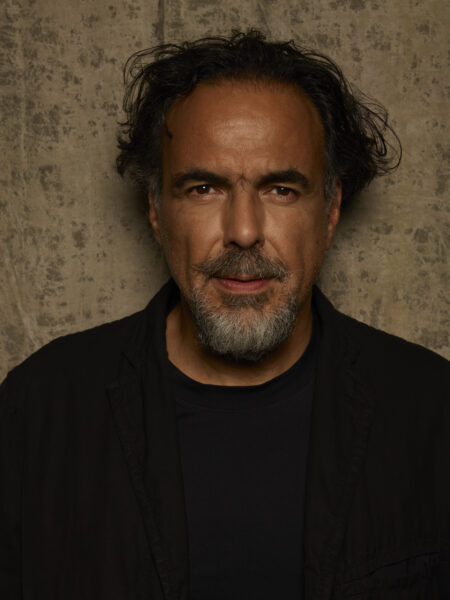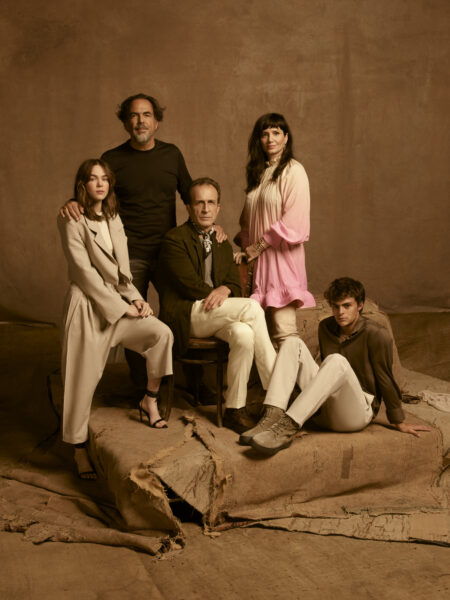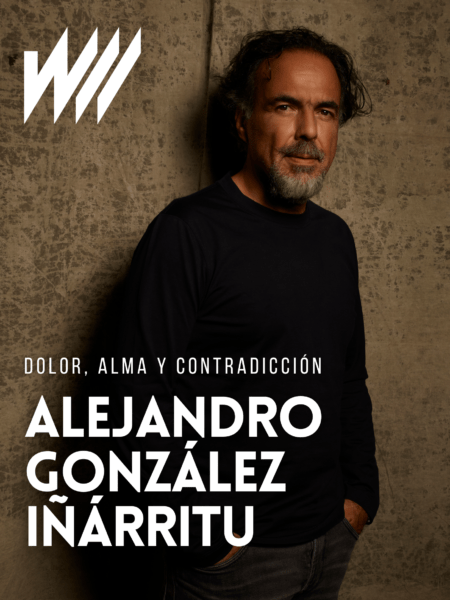// By: Ernesto Cruz
Wed 30 November, 2022
Interview: Linda Cruz // Photos: Gray Curtain
«History is written by the victors” said Walter Benjamin, the philosopher of the defeated. And it is that one of the most complex -and painful- processes of human development is to realize that the review of the past is nothing more than an interpretation of the facts according to our own interests and feelings, without any type of certainty for the truth. .
Bard: False Chronicle of a Few Truths (2022), the new movie Alejandro González Iñárrituis precisely a titanic task to dismantle the myth of our own history: personal and social, through freedom and paradoxically, imagination.
In his seventh feature film as a director, the Mexican artist strips naked and assumes the responsibility of being the means to question time as the only tabulator of our existence; and he does it through an insane, dreamlike journey, in which he exposes a series of ideas where he is sometimes the judge and sometimes the party.
Because there is nothing more human than contradiction.
Here and now, the virtual cover of WARP for the month of December with the exclusive interview with Alejandro González Iñárritu in what he himself defines as the best moment of his career so far.
Alejandro González Iñárritu, let’s talk fully about Bard: False Chronicle of a Few Truths (2022), which, like all your filmography, is full of reflections; but this one in particular has a clear exercise in introspection. I would like to know what led you there: a need, a foolishness or a psychoanalytic effort…
A bit of everything. I could say that more than first person, this film expresses itself through an alter ego… A character that I know well and that I use to channel -as the title says- a false chronicle of a few truths; because it is that: a very personal walk through feelings, ideas, fantasies, fears, memories and even projections of events that I would not like to happen.
This film is a combination of very intimate elements, very mine; and at the same time, others that also belong to the imagination and therefore to fiction. It portrays very personal episodes and goes to macro events in the history of Mexico that involve us all.
So all this pozole of elusive stuff is something I’ve never worked on before. It is a story without a story that concentrates its axis of gravity on emotion and with which I do feel a bond of belonging, there is a conviction through the heart because I understand Silverio; however, I do not understand it because it is autobiographical but because it is autofiction.
And the difference is liberating because it is not a film that talks about me from a linear approach, year by year because that would mean an effort to have absolute truths. Rather, it focuses on emotional certainties that is not the same as telling reality or factual facts.
And I think that the very title gives the viewer the freedom to interpret what they want to interpret, right?
Exactly. And it is very curious because, for example, Daniel Giménez Cacho is asked how he did to emulate me and the truth is that he does not: Daniel does not act like Alejandro González Iñárritu, he endorsed all the emotions that I raised with him.
He worked from his mother, from his father, with his children… It helped a lot that we have very similar circumstances: more than thirty years of marriage, two children, a father who died when he was young; and it is where, when I dream of these images -whether real or fictitious- they are so intimate and so honest that it is not difficult to empathize with them.
It’s like when you go to eat with a friend and he tells you his things: you connect with that person because you know that he tells you from the heart.
You speak of dreaming images and in Bard We see beautiful sequences and scenarios, very striking. What was it like to land those dreams in a script and then materialize them on filming?
Very complicated because dreams are difficult to accurately describe in words, and then you have to turn them into ideas and then into sequences and scenes that you have to execute. In this process there is a lot to consider: light, movement, rhythm, without any of these elements betraying the dreamlike nature of the film.
And therein lies the great challenge because dreams are fed by spirituality and spirituality is not something that is simply planned. In that sense, I am very proud of Bard because it is my best achieved film on a technical and visual level. It required a level of preparation that I had never had and in the end it is the image work with which I have felt most satisfied, also largely due to the work of Eugenio Caballero and Ana Terrazas.
I feel very proud because I think we achieved a beautiful portrait of Mexico. It was like enriching that memory of ours.
It gives the feeling that Bard It is going to be a film in continuous movement that is going to give new meaning with age and experience, and that will require revisiting at different times in personal and public life. Is it something that Alejandro González Iñárritu set as his objective from the beginning?
The truth is, no; but I can perceive it. In my view, it’s my best film and I feel that way because it combines virtues of the others I’ve made in these 25-year career as a director.
I did it with the maturity and courage to express things the way I did. I was able to release ideas with openness and vulnerability that led me to be stronger in every way, because vulnerability has the virtue of freeing you from fear. I feel very solid within the fragility, if the expression fits.
At the narrative level, alluding to what you are commenting on, an English journalist told me that Bard it is like Hopscotch of Julio Cortazar because it works in a circular way: you can start from anywhere and sooner or later you will arrive at the same place.
And it is that this is life: we are born as a shadow and we die as a shadow, and in the middle of that is all the chaos that is life. It was also a difficult movie to make because it was painful; but as they say: the pain is fleeting and the film will continue to have. life. I think it has the potential to be timeless.
Especially since it doesn’t talk about something specific, it’s more of a state of mind.

How to find beauty in pain?
The wound is the origin of beauty. And by wound I mean that place to which we all turn in search of refuge and no matter how uncomfortable it may be, it is luminous. reminds me of this phrase Leonard Cohen in which he says: ”everything has a crack but it is through that crack that light enters”, and this film is the beauty of the wound.
From the beginning I wanted to do it from the light, not from bitterness or victimization. That is why there is also some humor in it: because of the possibility of satirizing pain and that is a way of healing.
I’m glad to know that it’s the movie that has left you the most satisfied but at the same time it can be risky because, from here, what’s next? Because from the same ambition of all the issues you touch on, we have the problem of migration, the issue of fame and recognition… Have you ever wondered what will happen to you after this?
I have addressed the issue of migration and the marginalized, to say one, several times and in many ways throughout my career, and I think that the interest comes from the fact that I am also a migrant -of a more privileged category, of course. – and in fact that reflection appears in Bard.
What I am getting at is that migration, beyond the economic, social and political conditions in which it occurs, universally generates those feelings of dislocation, melancholy and nostalgia. That is why it was important for me to tell my experience and my vision of this phenomenon: because I share that dislocation, that melancholy and that nostalgia of the people who have left their homes without the favorable conditions in which I did.
And it is also necessary to lose fear of speaking from privilege because, after all, it is another perspective of society that must be explored. In the end, all the great filmmakers in history have rid themselves of that fear of telling stories from advantageous conditions that, in the end, we did not choose, life gave them to us.
Of course it’s not easy because you have to be authentic but above all, smart enough to know where the limits and biases of your experience are.
It has been a pleasure talking to you about this very special film. What would you tell people before they see this movie?
Go see it at the cinema because it is a multisensory experience that was built with great care from the technical side. Yesterday I was listening to it on Atmos and it’s crazy to feel the materialization of a year of sound design; and then seeing it in IMAX helps to strengthen the idea of delirium and of living this waking dream almost in the first person.

#WARPPresenta Interview with Alejandro González Iñárritu: pain, soul and contradiction

